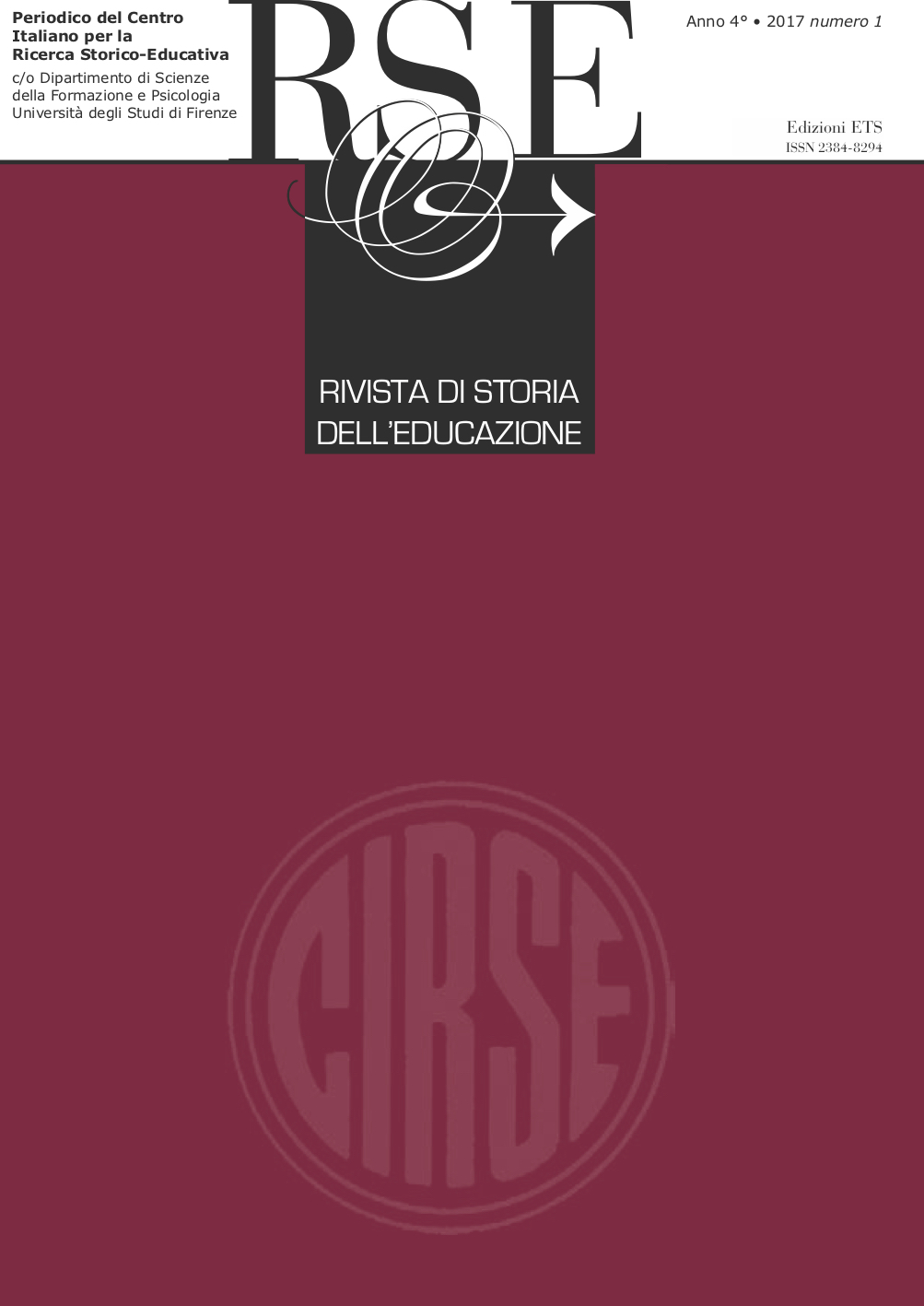Leisure and quality of cultural consumption: political and cultural issues in the recreational theory by E.C. Lindeman
Published 2017-11-13
Keywords
- E.C. Lindeman, recreational theory, recreation, leisure time, cultural consumption, education, consumerism, adult education
How to Cite
Abstract
The article focuses on the characteristics and dynamics of the so-called “cultural consumption” just as they have been identified by Eduard C. Lindeman (1855-1953) in the US context after the end of World War II. In fact, the quality of recreational dimension – of individual, of family and of community as a whole – is an essential aspect in the Lindeman’s conceptions, in order to put into effect a democratic social order, in contrast to increasing standardisation pressures and trends of leisure time activities that are suggested and carried out. Therefore, the article considers some Lindeman’s writings which directly address this topic – e. g. Youth and Leisure (1937); Recreation and Moral (1941); Ideals for Family Life after the War (1942) – including the Italian translation of one of his most relevant articles in this field: The Dynamics of Recreational Theory (1948). The latter is a short essay, in which he addresses the homogenization of consumer-facing recreational activities, and their social, political and educational causes and effects. This in-depth analysis – which also aims to contribute to disseminating Lindeman’s thought and works, in the Italian context – can be interesting and useful both to understand the proposals by an author who is considered one of major founders of Adult Education in the modern perspective, more generally, and, in particular, to explain the emergence of the “American way of life”, highlighting some of its specific features.

